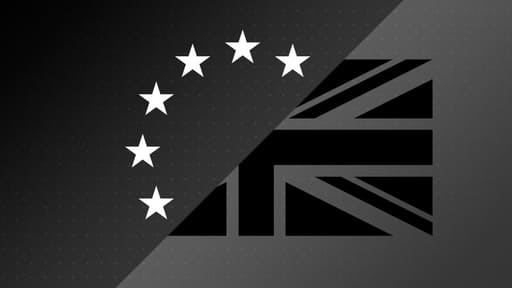Everything Shippers Need to Know About Brexit

On January 1, 2021, the United Kingdom (UK) will conclude its Brexit transition period and officially depart from the European Union (EU).
While this comes as no surprise, this understandably raises questions for shippers who want to know how Brexit will impact customs, shipping costs and their business.
At Coyote Logistics, we are committed to helping you navigate the unique challenges of Brexit by offering our knowledgeable support and flexible supply chain solutions.
Here is an overview of how we are prepared to support you through Brexit:
How has Coyote Logistics prepared for Brexit?
Our UK office in Dover is well-positioned to respond to Brexit, thanks to our communication with key local agencies, such as the Department for the European Union (DExEU) — a former HMRC division — and the UK Border Force.
Additionally, our team has regularly attended Brexit preparedness seminars hosted by British International Freight Association (BIFA), the trade association representing UK freight forwarders.
These seminars provided us ongoing access to principal parties from relevant government agencies as well as visibility into the practical, frontline planning that these agencies are conducting.
How will Coyote Logistics handle customs clearance?
Since Coyote Logistics already handles inbound and outbound freight in other non-EU countries (i.e. Switzerland), we are familiar with customs requirements both within and outside of the EU and have well-established processes in place.
We utilize various customs agents throughout the EU and leverage the in-house customs team to provide customs services in select countries.
If you are one of our customers, please notify us as soon as possible if you want us to handle your customs clearance. Upon receiving your request, we will send you a packet of key preparation documents — which you are required to fill out and return to our team before we can handle customs on your behalf.
Here is an overview of the key information you will need to obtain and/or record:
- ECONOMIC OPERATORS REGISTRATION &IDENTIFICATION (EORI) NUMBERS OF IMPORTER AND EXPORTER
This identification number is mandatory for customs clearance of goods.
- DESCRIPTION OF GOODS
Brief description of goods must include gross weight, net weight, quantity of packaged units and type of packaging.
- COMMODITY CODE(S) OF THE GOODS
Harmonized System (HS) codes, or the standardized numerical method of classifying your goods, as determined by customs authorities.
- VALUE OF GOODS
Monetary total value of all goods in your shipment. This is used to calculate the customs duties and value-added tax owed.
- INTERNATIONAL COMMERCIAL TERMS (INCOTERMS)
Rules which clarify buyer and seller obligations and define who is responsible for customs clearance and associated costs.
What alternative routes will Coyote Logistics use if there are disruptions at Dover, Calais and Eurotunnel?
Calais-Dover remains our preferred route for the following reasons:
- Capacity: There are several ferries and trains per hour on this lane, so even if there is a disruption, it is still likely to clear much more quickly than other ports. Based on current schedules from alternative ports, there is very limited Roll-on/Roll-off (RoRo) ferry capacity — some ferries only take unaccompanied trailers and most routes only have one or two ferries per day.
- Flow: Calais, Dover and Eurotunnel have implemented additional systems to aid quick transit through their terminals. Both ports have indicated that they will prioritize flow, and Dover will suspend customs checks for the first six months of 2021.
- Time: Cross-Channel transit times are much better at Calais and Dover, since accessing alternative ports requires longer crossings and extended road travel.
However, if Calais-Dover experiences significant disruption, we have contingency plans and procedures in place to make use of alternative routes.
Coyote Logistics is equipped to book capacity on alternative EU mainland-UK crossings as needed.
Preferred alternatives are Zeebrugge and Rotterdam to eastern and NE UK ports. There are also a few options from other ports in France, but as mentioned above, capacity is very limited.
We will take all of these factors into consideration when determining the best route for your shipments. Regardless of which crossing we utilize, you should anticipate increased transit times and prepare accordingly.
Can Coyote Logistics fast-track customs clearance with Authorized Economic Operator (AEO) status?
No, Coyote Logistics cannot fast-track your shipment, as we do not have Authorized Economic Operator (AEO) status. However, since the ports of Dover and Calais have made preliminary adjustments, we do not believe this will have a significant impact on processing speed within the first 12 months following Brexit.
In order to fast track through customs, every company in the supply chain must have AEO status — including the manufacturer or shipper.
Coyote is closely monitoring the situation and will apply for AEO (or any alternative that is introduced) if we believe that doing so will streamline the customs process for our customers.
Dedicated Brexit Team and Additional Support
In order to better support your business during this complicated time, we established a dedicated Brexit team.
If you have additional questions, require operational support or want to find out how Coyote Logistics services can help your supply chain better navigate Brexit, please contact us at